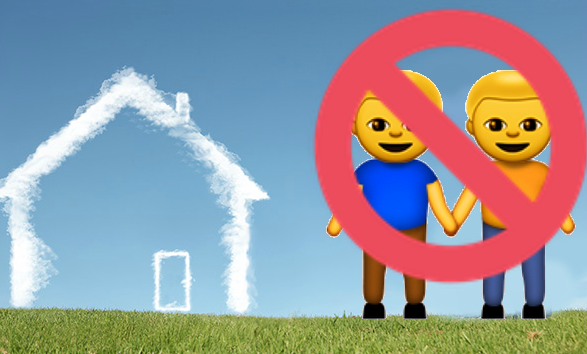Why young Aussie Queers will never be homeowners
By Charlie Tetiyevsky
There seems to have been a rather blind set of eyes turned at poverty recently, with the tone-deafness reaching a head in Malcolm Turnbull’s particularly egregious comment this week that parents “shell out” if their children are having trouble buying property.
There couldn’t be more problems with this comment unless Turnbull had tagged on a “dyke!” or something at the end. What do his words say about perceptions of millennials as “lazy” or “entitled” or “hangers-on” that we are expected to get our parents to help us instead of having any chance of “making it” ourselves? What does his comment say about opportunities provided to our parents’ generation and eradicated for or withheld from ours?
We’re chastised no matter what innovations we make or how many of us run businesses or how much we contribute to the GDP — but on the plus side, if we stay out of the hyper-inflated property bubble that’s risen around Sydney and the other capital cities we won’t have to beg our parents to help us pay up again when our mortgages are due and we can’t sell the place we’d bought for even a fraction of what we bought it for. I know this story; it’s the typical one of the burst housing bubble, and the people who get left behind are people like us who would be buying our first properties and getting swept into debt from the get go. It’s not a great trap to get into, and certainly not one to even approach if you have to borrow for a down payment.
But this is rarely raised as a concern for first-time home owners, supplanted instead by concerns over how to afford the down payment in the first place when you’re spending most of your pay check on rent and food. The goal, as Turnbull and his ilk present it, is to get that $20,000 or whatever by any means necessary, including prodding your parents for it, and not to worry about the fact that all of your savings have suddenly gone into one inflated asset.
Look, Turnbull’s suggestion is fucked for any number of reasons besides the financial implications—not everyone has parents who can afford to (or want to, damn) fling cash at their spawn. Not everyone has parents for goodness’ sake, and many members of the LGBTQ community in particular get ostracised when they come out (or else have to choose between the closet and being part of the family). It turns out that 11.8% of LGBTQI individuals are “more likely to have no contact with family or no family to rely on for serious problems,” nearly twice the level for heterosexuals. That means thousands of people, queer and straight alike, don’t have a chance of doing what Turnbull suggests even if their family does have the money.
How are people in general meant to save up when rent is charged at such extortionist levels? When people 15-24, the group with the consistently highest rates of unemployment, participate in the labour force at lower levels than in 1995? (The study of “Youth Employment in Australia” makes clear that low levels of labour participation indicate a low “level of confidence a cohort might have in gaining employment”—to the point where they essentially don’t even try.) When wages for gay men are 13% lower than their straight counterparts? When 12% of LGBTQI individuals have experienced being homeless, compared with 2.9% of the heterosexual population? (The lack of a previous renting history can, of course, make it much harder to get a lease once that becomes a possibility.)
20.9% of LGBTQI people are in the lowest quintile of household income, and 22.6% are on government cash pensions and allowances. 22.9% are not in the labour force at all, and 34.8% have no non-school qualifications (rates that we can presume will get higher as university deregulation proceeds and TAFE funding is cut). Mental health problems are at frighteningly higher levels in the queer community than they are in the general population, which, of course, also presents significant hurdles to obtaining and retaining employment.
How is anyone meant to get settled, let alone a leg up to the point where they can afford to live in the city they call home?
It’s egregiously clear that the LGBTQI community is not given the equipment it needs to combat an economy already hostile towards non-baby-boomers, both queer and straight. Young people cannot afford to star their lives out in debt. I don’t have the solution—but clearly neither does the government.

